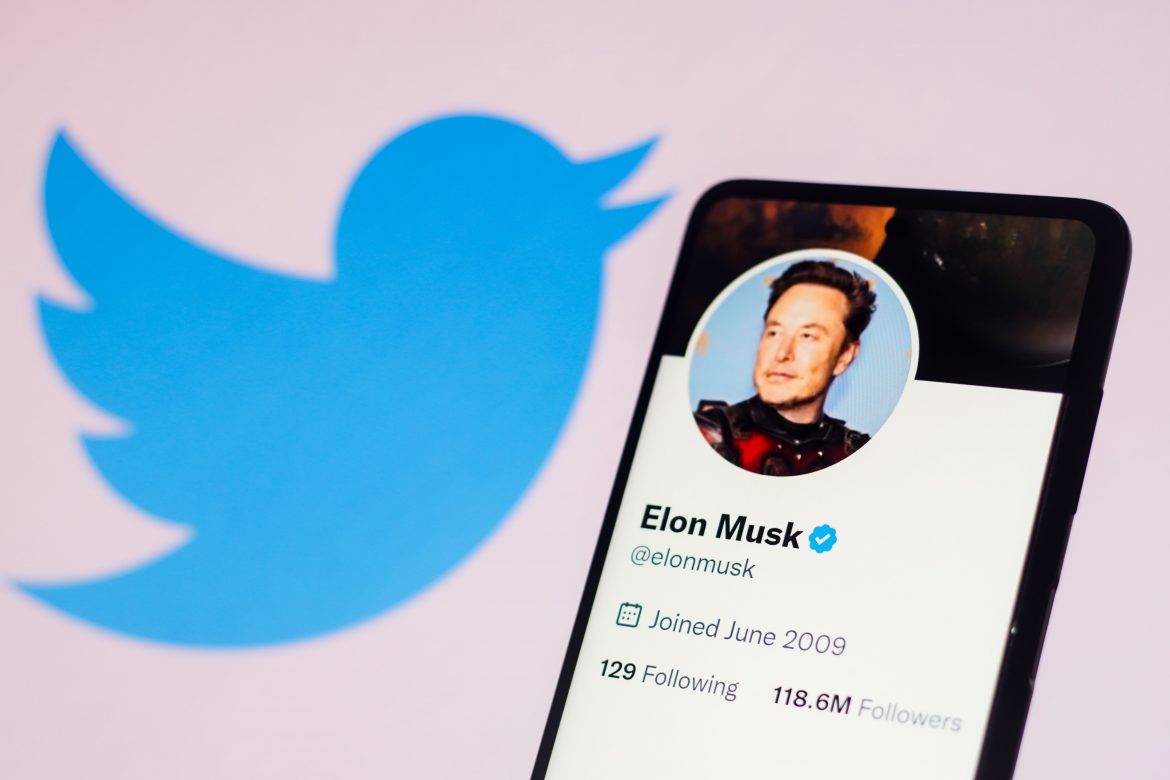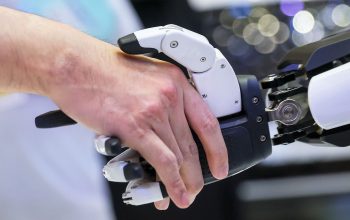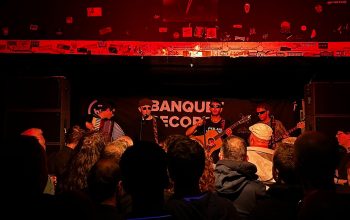Twitter has been undergoing a surrealist displacement for the past month. It would not be inaccurate to liken Musk’s takeover of Twitter to the sacking of an ancient city. The very sense of law and order, even reality itself, falling away beneath the sword of a conquering king.
Musk’s procession on Oct 26 into his new kingdom, struggling to carry a sink to accompany his ill-thought-out joke, marked the embarrassing beginning of a Shakespearean reign of chaos. Since then, almost every action the ruler has taken has felt like a step closer to the gallows for the entire platform.
The instantaneously documented decline of Twitter is a ridiculously fast-moving story. This has been bad for anyone seeking to write about Twitter, but great for the casual observer. There’s always something new to ridicule or be embarrassed by.
Elon Musk takes over Twitter
It’s easy as an observer to see some sign of colossal struggle behind the billionaire’s tweets. Since the acquisition on Oct 26, Musk has framed his occupation as a good thing for the Twitter throng. “The bird is freed” he triumphantly announced, framing his acquisition as a populist return of power to a censored people. This thread of thought has persisted ever since.
At the onset of this entire debacle, free speech has been the consistent casus belli for his campaign. Quietly purchasing Twitter stock since January, Musk became majority shareholder in Twitter on April 4. After significant drama, involving many critical tweets attacking Twitter staff, Musk bided time until April 14, offering to purchase the company for $43 billion.
On his lips at the time? The idea of reducing content moderation as much as possible.
Elon Musk on free speech
“I invested in Twitter as I believe in its potential to be the platform for free speech around the globe,” Musk declared. He regurgitated ideas of Twitter as a ‘town square’, a digital city even, vital to democracy and totally not dealing with a loose set of content moderation rules already.
One had to wonder where the idea originally came from, though one can infer that Musk simply grew sick of seeing his favourite conservative twitter accounts, such as the Babylon Bee, vanish. I mean, he’s reported as saying as much after confirming that the account had been banned for misgendering American paediatrician Rachel Levine.
At this point, Musk’s critics began to awaken to what his idea of ‘free speech’ might entail.
In the hours following Musk’s sink procession, there was a notable surge in hate speech on the platform. A rampant desire to test the limits of Musk’s free speech absolutism led to Musk’s depressingly large collective of sycophantic supporters unleashing as many slurs and racial epithets as possible.
Much of this was cleaned up yet it signalled that to some, this new regime was a pass for anything they wanted. To those still in the collapsing city, it was surreal to see.
But here’s the thing. My opinions don’t matter to the richest man on Earth. The opinions of multibillion-dollar corporations do though. In a bid to the hands which feed the platform, Musk claimed Twitter was “warm and welcoming to all”. It would be funny if the irony wasn’t so clear.
Twitter won’t descend into a “free for all hellscape”, Musk said as the flames began to rise at his feet.
Musk’s Twitter in decline
Where we stand now, on Nov 30, all is ashes. Twitter Blue, a hilarious misstep that allowed users to pay for verification, destroyed much of Musk’s credibility. An account posed as Lockheed Martin and claimed to be “ceasing sales to the USA, Israel and Saudi Arabia”. One account posing as Nintendo posted beloved character Mario flipping you off. Another account posing as Eli Lilly claimed to be making insulin free, causing share prices, in the real world, to absolutely nosedive 4.37%.
Meanwhile, Musk fiddled as his kingdom burned by posting laughing emojis to several impersonator accounts. Was this all a joke? Is this a man you can trust? On Nov 11, Twitter Blue was unceremoniously executed.
Amidst this, Musk has laid off 50% of Twitter’s employees. Blaming revenue and cost issues, this is undoubtedly caused by a mass exodus of advertisers. This is all due to his unstable leadership and a fear of advertising on a platform with little to no restriction on hate speech and vitriol. Those cut include 7,500 full time employees, including the team that took down toxic and fake content.
All this has done is further embolden the worst elements of the site, the most racist and the most bigoted. Yesterday, Apple threatened to boot Twitter from the app store, according to a tweet from Musk. It seems clear that as advertisers and investors lose interest in the platform, no amount of $8 checkmark subscriptions will be able to save the site from Musk. Twitter is becoming a financial black hole.
How do you plug the gaps in money? Well, outrage works!
Ignoring the flames, the reports from academics and online safety groups, Musk donned his best purple toga and began tweeting in Latin. On Nov18, he used a twitter poll to determine if people wanted Donald Trump reinstated, a poll that succeeded with 52% in favour. Obviously, a Twitter poll is the least trustworthy measure of sentiment, but it sent a clear message.
“You’ve made me do this,” was the subtext, as advertisers refused to play ball for reasons Musk seems to genuinely not understand. Time to open the gates of hell.
Musk’s power over twitter discourse
Although, at time of writing, Trump has (rather hilariously) rebuked offers to return to his role as ‘worst poster’, at least 11 high profile far right accounts have been reinstated. Among them include his beloved Babylon Bee, Canadian demagogue Jordan Peterson and Georgia rep. Marjorie Taylor, who had been banned since January for violating the platform’s stance on misinformation and extreme rhetoric. Musk has filled his mentions with general far-right actors and began tweeting increasingly baffling things.
On Nov 23, the free speech project culminated in his poll on a general amnesty of suspended accounts. Should this go ahead, well, that ‘free for all hellscape’? If it isn’t already real, it’ll become real. Since then, the emperor has tweeted about the culture war and posted about ‘psyops’, another frequent fringe online talking point. It’s like watching a teenager radicalise himself by exposure to far-right YouTube pundits.
Musk seems committed to centring Twitter in the rage economy, relying on outward gestures to political extremities for attention and engagement. This model has become common in the information age, as traditional streams of funding dry up. Aligning himself with far-right actors, catering to their needs, Musk clearly sees some form of opportunity. Yet, the harm this causes for marginalised groups defies belief.
Within a day of the Club Q shooting which killed 5 and wounded 18, Musk’s emboldened sycophants were tweeting, in the bluntest terms, that the club’s clientele had brought it upon themselves. The same day, Musk was replying to right wing youtuber Tim Pool, who had claimed the club was hosting a “grooming event.”
The rhetoric emboldened by Musk’s laissez-faire approach has tragic consequences for those marginalised in online spaces. As Twitter is shaken from controversy to controversy, it’s easy to forget the power Musk has over online discourse. By using free speech as a casus belli, Musk has only worsened issues, to the point we now see a cycle of advertiser loss followed by increasingly fringe talking points.
Musk is the richest man on Earth. Twitter is a toy, one he can fund out of pocket if he so wishes, something he has already been doing. While dozens of users envision the dramatic collapse of the servers and mass evacuation of users, it’s clear to me that Twitter, if it can die, will go with a whimper. There will be a slow, protracted loss of engagement as Musk stimulates the right-wing extremists he feels beholden too, until he deems the toy too demanding and lets it die.
Interested in this? Why not listen to Cameron In Conversation with the Courier’s media editor, Philip Barr.





